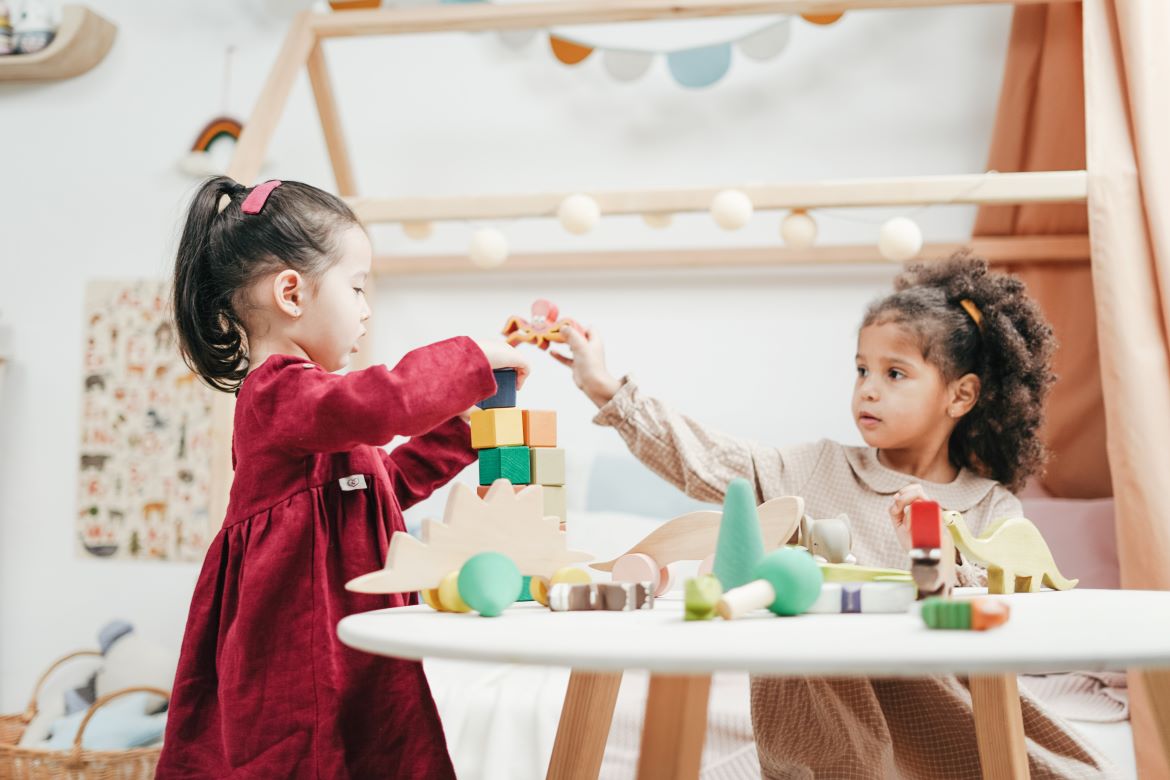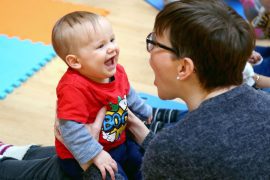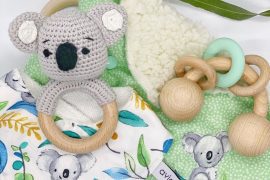By Stephanie LoPresti
There is a common misconception that imaginative play isn’t imperative to development, however, as a speech language pathologist, I am here to share that not only is pretend play important, but it is actually a developmental milestone that we literally check off during formal assessments! Pretend play is a developmental expectation for children between 18-21 months of age. A schema that we look out for at this age includes using two toys together in figurative play. An example of this would be taking a cup and pretending to give a teddy bear a sip of water.
During pretend play, children have the space to practise expanding their language skills in a natural context.
The development of pretend play requires the use of very important milestones and concepts.
To name only a few are the use of imagination, reenactment of familiar routines (with a creative twist), countless opportunities to expand their language, increased creativity, development of thoughts, and storytelling!
Basic toys that can be used to inspire imaginative play in children:
- Playdough (you can even make your own!)
- Pretend food sets and kitchens
- Baby doll with associated toys
- Any mini-toy or action figure
- Cars, trucks, and airplanes (especially for the little boys out there)
Methods to expand your child’s language and pre-academic skills through imaginative play:
- Modelling: This is when you “act out” possible scenarios or events with toys. You can use toys to cook, cut, roll items. Set the stage for your child’s imagination (e.g. “Should baby doll go for a trip to the grocery store or would she rather visit Grandma?”)
- “Think alouds”: Think alouds are when you are narrating a possible “pretend play” scenario/sequence. For example, you would “talk aloud” the setting up of an imaginary event for your child to model and then expand upon.
Parent: “Baby doll wants to go to the beach to play, what do we think she’ll want to take with her?”
“What can she do with the shovel? Does she need anything else?”
“What would happen if we forgot to pack a snack?”
While we are “thinking aloud” we are allowing our child the stage to respond to our prompts and use their own imagination to complete the play sequence. This also assists with development of problem solving skills.
- Vocabulary expansion: While engaging in pretend play, you have limitless possibilities to embed new vocabulary with context rich vocabulary (e.g. spatula, oven, baby bassinet).











